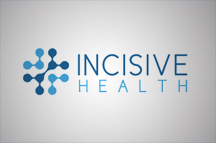Did the marathon distract you from Twitter? Coming up, we’ll tweet the health highlights from our own Twitter marathon.
-
 Nearly two thirds of people with a preferred GP report they can see them ‘always’ or ‘a lot of the time.’
Nearly two thirds of people with a preferred GP report they can see them ‘always’ or ‘a lot of the time.’ - Was Stonehenge a placebo hospital? Fascinating video on the placebo paradox.
- The squeeze on public spending – the percentage of GDP spent on health is now going down.
- Great Pinterest board from the Nuffield Trust on the four countries report.
- NHS England’s organisation is moving on apace. A year in and non-executive director Ciaran Devane finally has a security pass (complete with a typo).
- The London Marathon brings plenty of cheers, tears and blisters. But what does it deliver for medical research? Read this blog by Simon Denegri.
- Nearly half of GPs surveyed are undecided about how they will vote at the next election.
- 17 out of 40 NHS trusts in London have no BME representation on their boards, shows this research.
- What’s in a P value? Less than you might think suggests this Nature article.
- Congratulations to Claire Marx – the first female president to be elected in the history of the Royal College of Surgeons.
- The top 50 medicines by global sales.
- An interesting animation by The King’s Fund on the issues behind pressures on urgent care.
- An amazing article on the development of artificial vaginas, engineered from the recipient’s own cells.
- The health impact of bullying.
- Congratulations to @Davewwest on making the top 10 UK reporters on Twitter.
- Mapping social progress and GDP.
And from America:
- A great presentation on the relevance, risks and rewards of social media in cancer.
- Surgeons remove a chainsaw from a man’s neck. The man professes to feeling “very lucky,” which may be an understatement.
And finally…
- People who use Twitter are apparently more likely to divorce.
Incisive Health is the new force in health policy and communications. In an NHS environment that is noisy, changing rapidly and where decision-makers are under intense pressure, policy communications need to be incisive to make an impact. We know how to cut through the noise and competing priorities to deliver results that enhance our clients' businesses and reputations and – ultimately – improve healthcare for patients.














